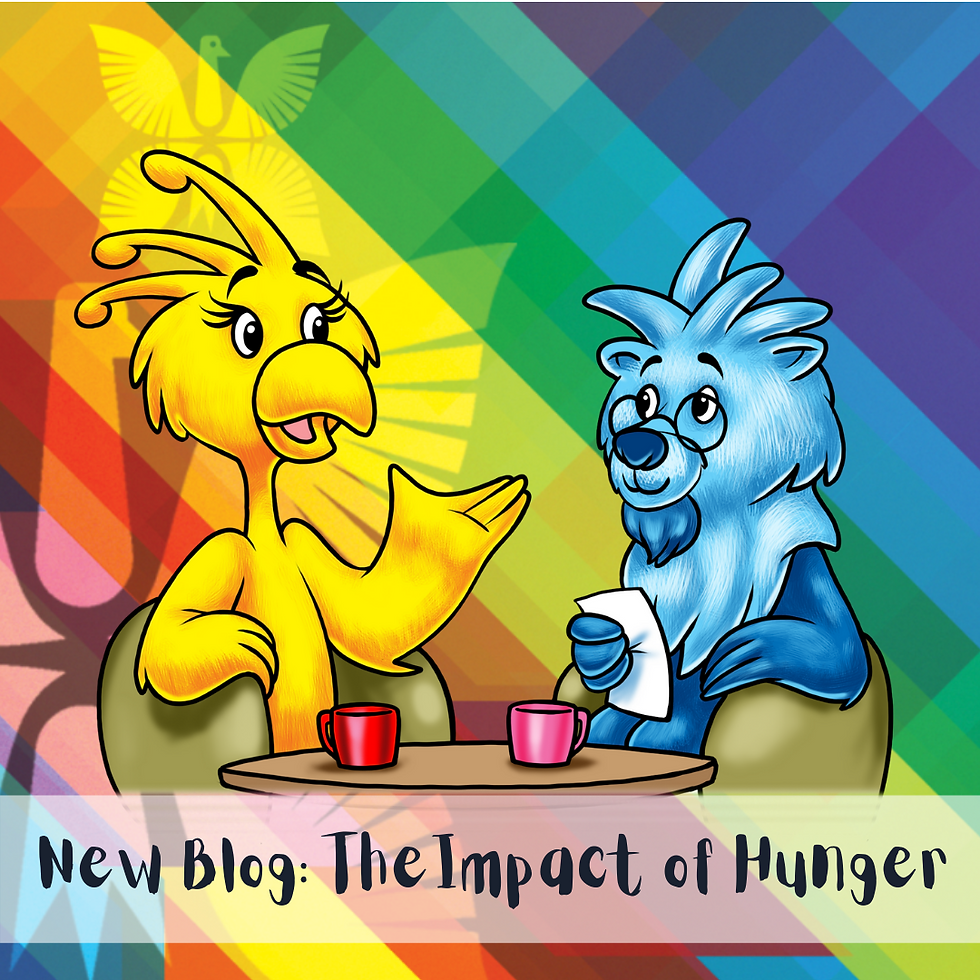Kids Covid MH Round up
- Phoenix Education

- May 13, 2020
- 3 min read

Pre pandemic, trauma is something we would hope few children would experience and an issue that we can leave for experts to address. However, as we begin to think about the return to school, realising every child will have experienced some sort of trauma is a harsh reality.
Although it is a long journey and there will be lot of lessons to be learnt, we began talking about trauma this evening to understand our starting point and define where we might need to go.
We started by asking, what trauma means?
I think that Sarah Birch, standard leads at River Tees Multi Academy Trust, summarised it well by saying, ‘Trauma is a response to something we find distressing or disturbing but what we need to remember is we are all individuals so what is traumatic for one learner might not be for another. In the same way I see trauma as a scale and there are vetting degrees of trauma’
As our conversation progressed, we noted that it was important for the child to define trauma, rather than us dictating what is or is not traumatic. We agreed that we are not entitled to set the rules around trauma, to judge emotion or validate responses but instead must listen to understand and act to support.
Secondly, we looked at the type of trauma children may have experienced as a result of Covid19. Sadly, there are hundreds of children that will be trapped in abusive environments, many that are likely to have experienced death and some will have struggled without interaction and support of the friendships, support and routine school provides.
We also explored the possibility of a widespread trauma we haven’t previously experienced. The reality is that a large number of children will be living in a heightened sense of arousal, presenting a flight or fight response. We found from our recent survey, the results of which we will share soon, that for many children, Coronavirus has created a threat to the life of someone they love and that means many, many children will have lived, 12 weeks in a state of fear with high levels of stress. When that ends, when that child reaches a safe place, there will be an outpouring of emotion that can be both good and bad.
The third question we looked at was based on the traumatic experiences we believe children may have been exposed to during lockdown and what types of behaviours we should explore and expect as children return to school.
Dr Fareeha Amber Sadiq FRSA joined us to share her thoughts around this, by replying, ‘Increased somatic symptoms - headaches, tummy aches. Difficulties with waking up if sleep schedule has been out of sync. Irritability. Confusion. Other physical symptoms of anxiety. Anger.’
Amanda Peddle, author of ‘Tams Journey’ shared her thoughts, saying, ‘Inability to access school. Sensory overload leading to increased reactive behaviours. Controlling behaviour that appears as aggression. Defiance in order to stay in control. Overwhelming emotional responses. Some will show physically. So increased absences due to sickness. Headaches. Aches. Not to mention extreme anxiety in response to all the usual bugs and colds that will appear after a gap’.
For us, there is an importance around really understanding individual differences. We looked at ‘risk taking’ as an example and discussed that for some people this could mean the abuse of drugs, alcohol or reckless behaviour whereas for others it could be arriving at school late, missing deadlines or challenging authorities in a more subtle way.
We moved on to looking at how we can support children as they return to school and agreed that taking an individual approach to every child is critical whilst also investing in the development of relationships and putting the needs of every child at the centre of every interaction.
We discussed the importance of being vulnerable - and being brave enough to share the fact we don’t necessarily have all the answers but will comfortably sit with our children or pupils whilst we find answers, or experience emotions together.
We thought it was important to look at when a normal response to trauma, sadness, uncertainty or bereavement translates into the onset of mental illness. We shared the importance of identifying magical thinking, recognising the signs of PTSD, OCD and reactive attachment disorder.
And finally, we explored the benefits of sharing stories of our own trauma so that we can create resources and frameworks that will help children as they return to school in the coming months.
I have shared some of my experiences relating to a childhood trauma, here and would be humbled and honoured to hear from anyone who might like to share their experiences with us to support the development of our trauma handbook and guide.




Comments